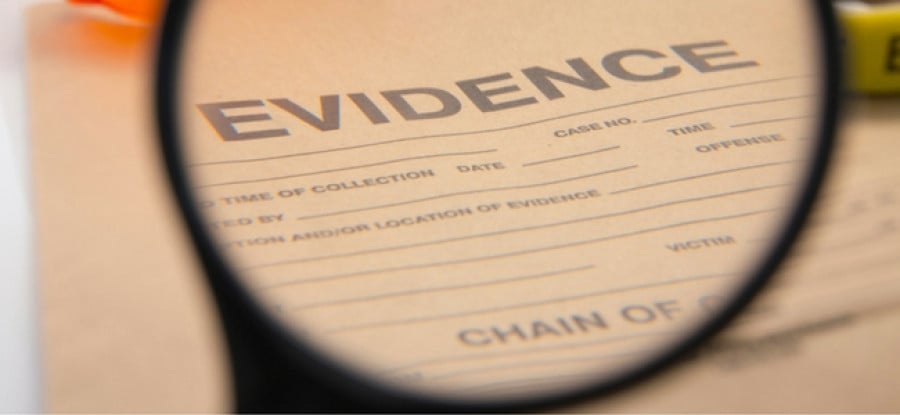Evidence, applicable law and provisional measures at the CAS Ad Hoc and Anti-Doping Divisions at the Olympic Games

In second part of this two-part article, Despina Mavromati, Managing Counsel at Court of Arbitration for Sport (CAS), analyses the specific procedural rules of the CAS Anti-Doping Division (ADD), as the CAS Panels at the Rio Olympic Games interpreted them. The article also compares these rules to the procedural rules of the (general) CAS Ad Hoc Division (AHD) and to the (permanent) CAS in Lausanne, Switzerland.
Part one offered an introduction to the ADD and the AHD Rules and examines their general scope and the jurisdiction of both divisions. Part two analyses the structure of the CAS ad hoc offices and the conduct of the ad hoc proceedings, particularly in terms of evidence, applicable law and provisional measures.
This article is essential reading for any sports lawyer who represents or plans to represent clients in sports disputes before the CAS.
Structure of the CAS ADD and AHD Court Offices / List of Arbitrators
Similar to the structure of the permanent CAS in Lausanne1 and the CAS AHD,2 the CAS ADD comprises a President, a Deputy President, arbitrators appearing on a special list and a Court Office.3 The particularity of the special list of the ADD arbitrators is that they may not act for the regular CAS AHD during the same edition of the OG or later, in case of referral of the case to the permanent CAS in Lausanne or in a case related to the same edition of the OG.4 An analogous provision was added to the CAS AHD Rules to ensure that the two divisions remain independent of each other.5 ADD arbitrators are chosen from the General List of CAS Arbitrators, in the same way as in the AHD Rules.6 The list is set up by the ICAS Board7 and can subsequently be amended if needed (e.g. in case of increased work load or in the event that some of the arbitrators need to be removed or replaced for some urgent reason).8 The arbitrators are selected taking into consideration the geographical distribution, the absence of links between the candidates and the sporting bodies and the qualification and experience of the arbitrators.
In both ad hoc divisions, the President and the Deputy President of the ADD (who may replace the President in his functions throughout the CAS ADD Rules) must be ICAS members and they are bound by analogous obligations of independence from the parties.9 Finally, both the CAS AHD and the new CAS ADD have their Court Offices established at the site of the OG and they are organized under the authority of the CAS Secretary General.10
Language of the proceedings, costs and seat of the ADD arbitration
The two official languages of the CAS (and the ad hoc divisions) are English and French.11 As set out in Article 10 CAS ADD Rules (in fine), the application has to be written in English or French.12 At the Rio OG, all ADD procedures were conducted in English. From the 28 AHD procedures, one procedure was conducted (and the final award was drafted) in French.13
The respective provision on the language of the proceedings to be found in Article R29 of the CAS Code (for regular arbitration proceedings conducted under the CAS Code) is slightly different in that it provides for greater flexibility. The parties have the possibility to have the arbitration conducted in another language under specific conditions.14 This additional possibility is not provided under the ad hoc rules for obvious reasons of urgency but a free of charge interpretation service is provided for first-instance anti-doping procedures pursuant to Article 22 of the ADD Rules if the parties so wish. In contrast, Article 22 of the CAS AHD Rules specify that the parties have to pay their own costs of legal representation, experts and interpreters.15
Apart from the costs of experts and interpreters in the AHD procedures, the entire ad hoc proceedings are free of charge and it is even possible to have recourse to a pro bono counsel at the site of the OG, with a list of pro bono counsel established prior to each version of the OG.
The seat of the CAS ADD is always in Lausanne, Switzerland, irrespective of the site at which the Panel might conduct the hearing or the country hosting the OG.16 This is in line with the general provision of Article R28 of the CAS Code and Article 7 of the CAS AHD Rules. The seat of arbitration has important procedural consequences, mostly with respect to the application of the 12th Chapter of the Swiss Private International Law Act (Swiss PILA) which is the general act for international arbitrations in Swiss law.17
Appointment of the Panel and independence of CAS ADD Arbitrators
Article 8.1.2 of the IOC ADR refers to the CAS ADD Rules for the constitution of the panel. In essence, the President of the CAS ADD appoints either a Sole Arbitrator or a Panel of three Arbitrators. The CAS ADD Rules do not define the criteria for determining the number of Arbitrators but general factors such as the complexity of the case should speak in favour of a Panel of three Arbitrators.18 Under the AHD procedure (Article 11) the sole arbitrator is appointed only in exceptional circumstances, the general rule being a Panel of three arbitrators.19 The main difference between the regular proceedings under the CAS Code the ad hoc proceedings (both the AHD and the ADD) is that in the latter, the parties do not play an active role in the constitution of the Panel or the number of the Arbitrators, in order to save time and reduce the risk of challenges of arbitrators.
The qualification and independence requirements of CAS ADD arbitrators are set out in Article 12 of the Rules. Said provision is a combination of Article S14 CAS Code (since the ADD Arbitrators must first appear on the general list of CAS Arbitrators), S18 CAS Code (on the prohibition of the double hat practice) and Article R33 CAS Code (on the independence obligations).20 In addition, ADD Arbitrators should possess “recognized competence with regard to antidoping matters”. CAS Arbitrators may obtain such experience either from involvement in CAS anti-doping proceedings (before the CAS Court Office in Lausanne) or be involved in anti-doping matters in another capacity, so long as this does not result in a conflict of interests. In view of the very tight timeline of the proceedings, ADD Arbitrators should be available at any time during the OG but also outside the period of the OG if need arises. As expected, CAS ADD arbitrators cannot act as counsel for other parties before the CAS ADD (the so-called “double hat prohibition”).21
With respect to the conditions for challenge and disqualification of arbitrators, Article 13 CAS ADD Rules is, again, identical to the respective provision of Article 13 CAS AHD Rules and very similar to Article R34 CAS Code: The arbitrators should voluntarily disclose any circumstances giving rise to legitimate doubts regarding their independence and disqualify themselves. All petitions for challenge by the parties are decided by the ADD President. The latter also has the power to remove an arbitrator if she/he is prevented from carrying out the duties under the ADD Rules) and to proceed to her/ his replacement as soon as practicable thereafter. The ADD President has the possibility to submit two related cases to the same Panel (if an application is related to an arbitration already pending before the CAS ADD).22 As specified in Article 11, the Division President will take into account criteria such as the progress already made in the first, pending case.23
“Provisional suspensions” in the ADD Rules
Article 14 of the ADD Rules is entitled “Provisional suspensions”. The Panel (or the President of the Division if the Panel has not yet been appointed) may rule on an application for a provisional suspension as defined in the IOC ADR. The IOC ADR provide some guidance and additional information regarding provisional suspensions. Article 7.6 of the rules foresees two different types of suspension, i.e. the mandatory suspension and the optional suspension. The former occurs when the analysis of an A sample has resulted in an AAF for a prohibited substance that is not a specified substance (Art. 4.2.2 WADC), or for a prohibited method, and in the absence of an applicable Therapeutic Use Exemption (TUE). The CAS ADD does not seem to have an alternative but to impose a provisional suspension promptly after the notification of the AAF. The “optional provisional suspension” applies to AAF for a specified substance (or for violations not covered by Article 7.6.1 on the mandatory provisional suspension). In both cases, if a provisional suspension is imposed, the athlete (or other person) will have the opportunity for a provisional hearing before the CAS ADD and an opportunity for an expedited final hearing before the CAS ADD, but also the right to appeal against the provisional suspension under Article 12.2 IOC ADR. It must be noted that the only person having standing to appeal against a provisional suspension is the athlete (or the person provisionally suspended).
The CAS ADD Panel may further lift the provisional suspension if it can be established that the AAF was linked to a contaminated product. In any event, the Panel’s decision as to the lifting of the provisional suspension cannot be challenged.24 The provisional suspension is also lifted if the B Sample does not confirm the A Sample analysis (since the provisional suspension is based on the analysis of the A Sample).25 Moreover, pursuant to Article 7.6.5 of the IOC ADR, it is also possible to accept a provisional suspension voluntarily pending the resolution of the matter.26 In the second CAS ADD procedure at the Rio OG, the Panel applied Article 7.6.1 of the IOC ADR and held that the mere departure from the International Standard for Laboratories (ISL) was not sufficient to prevent the possibility of a provisional suspension. The application can only be denied if the panel is satisfied that the departure (if it occurred) caused the AAF.27
Article 14 of the ADD Rules differs from Article 14 of the AHD Rules, as in the latter case the applicant usually requests the CAS AHD to stay the decision appealed against or to be granted interim relief.28 The different procedure regarding interim relief before the CAS AHD is as follows: in principle, applicants for provisional measures are the athlete / the IF or the NOC. The Panel may grant interim relief even without hearing the respondent (in cases of extreme urgency). A decision to grant interim relief has only a provisional effect and is replaced by the final award of Article 20 of the CAS AHD Rules. The criteria employed by the Panel / Division President when deciding on the provisional measures are similar to the ones enumerated in Article R37 CAS Code (irreparable harm, likelihood of success on the merits and balance of interests).29 These criteria do not appear in the wording of Article 14 of the ADD Rules, as this is a first-instance procedure.
Practical information regarding the ADD procedure
To continue reading or watching login or register here
Already a member? Sign in
Get access to all of the expert analysis and commentary at LawInSport including articles, webinars, conference videos and podcast transcripts. Find out more here.
- Tags: Anti-Doping | Court of Arbitration for Sport (CAS) | Court of Arbitration for Sport Ad Hoc Division (CAS AHD) | Dispute Resolution | Governance | Litigation | Olympic | Regulation
Related Articles
- The legal framework of the CAS Ad Hoc Division at the Rio Olympic Games
- CAS Rio: The CAS ad hoc division in Rio closes with a total of 28 procedures registered
- Activities of the CAS Divisions at the Olympic Games Rio 2016
- Rules, scope and jurisdiction of the CAS Ad Hoc and Anti-Doping Divisions at the Olympic Games

 Global Summit 2024
Global Summit 2024